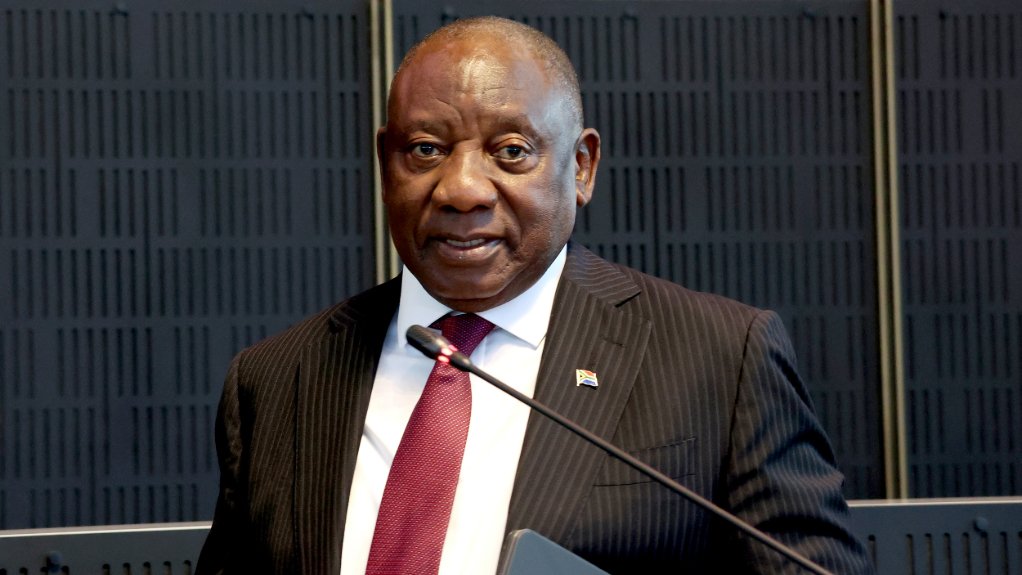President Cyril Ramaphosa said on Monday that trade between countries must remain “free, predictable and governed by a rules-based system”, particularly for developing economies, many of which he said remain in the lower end of global value chains.
He said the South African government was pursuing a trade policy that used international trade agreements to secure fairer terms, promote market access and facilitate expansion into new markets.
“That is why, as part of our G20 Presidency, South Africa is promoting a trade agenda in which G20 members commit to measures to promote expanded, more inclusive and more sustainable value chains,” he explained.
He said South Africa would continue to advocate for a level playing field in global trade and supports the World Trade Organisation’s (WTO’s) reform process that seeks to address deficiencies in the global trade regime that work against developing economies.
In wishing the WTO well on its thirtieth anniversary, last week, Ramaphosa urged the body to uphold its aims to ensure smooth, predictable and free trade, amid what he described as "challenging and uncertain times".
As the world grappled with flip-flop tariffs, imposed and suspended, by US President Donald Trump, Ramaphosa called for a recalibration of trade rules that ensured policy space for the industrialisation of developing countries.
He described constraints and potential over-reach of trade rules, globally, which he said limited access to key policy tools.
He called on the WTO to provide reform and to be assertive in its mission, as more than 80% of world trade takes place under WTO rules.
He stressed that South Africa is committed to maintaining good relations with existing trade partners and to forging new trade relationships.
“As government, business and labour, we will continue to deepen our collaboration as we navigate a global trade environment that has become increasingly complex. Our goal is to secure favourable trade terms that advance our national interest, drive inclusive growth and create jobs for the South African people,” he noted.
Ramaphosa said developing economies, such as South Africa’s, were vulnerable to volatility in international trade.
“…this is particularly the case in the face of unilateral actions and coercive measures that undermine multilateral agreements and the global rules-based trading system. We are, therefore, working in different ways to make our domestic industries more resilient,” he assured.
To bolster the value of the country’s exports, he said government was strengthening the regulatory regime, noting that last month the Plant Health Act was signed into law.
The new law aims to improve domestic biosecurity and ensure greater alignment with international export requirements.
Government is also intensifying its efforts to diversify destinations for South African goods, products and services, with Ramaphosa noting government’s access to the Thailand market for apples, for the first time in 16 years. South Africa also exported the country’s first container of avocados to Japan.
This month South Africa also gained market access for South African table grapes to the Philippines.
“We are deepening relations with countries and regions with which we have regional and bilateral trade agreements that provide preferential trade terms. These include the Southern African Customs Union and the Southern African Development Community Free Trade Area,” he said.
He highlighted that government was working to make effective use of the African Continental Free Trade Area (AfCFTA), saying government had commenced trading under the AfCFTA Agreement.
At last month’s EU-South Africa Summit in Cape Town South Africa signed a trade and investment package worth around R90-billion, which will support the export of more South African-made products into the EU.
“We are increasing investment in domestic industries that contribute to exports. The 2025 Budget allocates increased funding to boost manufacturing and agro-processing, as well as for incentive programmes that strengthen local value chains and open access to key international markets,” he said.
EMAIL THIS ARTICLE SAVE THIS ARTICLE ARTICLE ENQUIRY
To subscribe email subscriptions@creamermedia.co.za or click here
To advertise email advertising@creamermedia.co.za or click here











